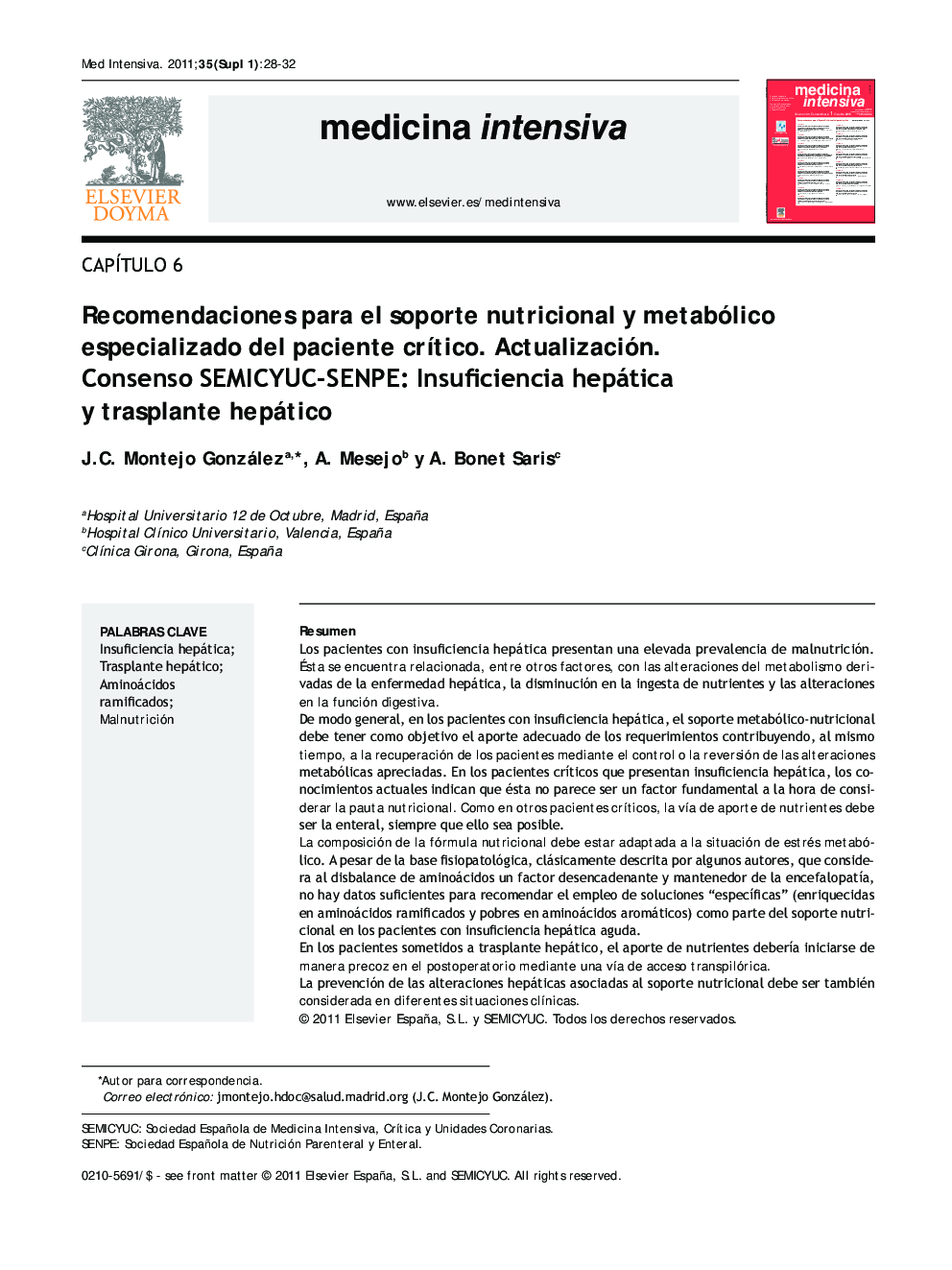| کد مقاله | کد نشریه | سال انتشار | مقاله انگلیسی | نسخه تمام متن |
|---|---|---|---|---|
| 3113464 | 1192380 | 2011 | 5 صفحه PDF | دانلود رایگان |

ResumenLos pacientes con insuficiencia hepática presentan una elevada prevalencia de malnutrición. Ésta se encuentra relacionada, entre otros factores, con las alteraciones del metabolismo derivadas de la enfermedad hepática, la disminución en la ingesta de nutrientes y las alteraciones en la función digestiva.De modo general, en los pacientes con insuficiencia hepática, el soporte metabólico-nutricional debe tener como objetivo el aporte adecuado de los requerimientos contribuyendo, al mismo tiempo, a la recuperación de los pacientes mediante el control o la reversión de las alteraciones metabólicas apreciadas. En los pacientes críticos que presentan insuficiencia hepática, los conocimientos actuales indican que ésta no parece ser un factor fundamental a la hora de considerar la pauta nutricional. Como en otros pacientes críticos, la vía de aporte de nutrientes debe ser la enteral, siempre que ello sea posible.La composición de la fórmula nutricional debe estar adaptada a la situación de estrés metabólico. A pesar de la base fisiopatológica, clásicamente descrita por algunos autores, que considera al disbalance de aminoácidos un factor desencadenante y mantenedor de la encefalopatía, no hay datos suficientes para recomendar el empleo de soluciones “específicas” (enriquecidas en aminoácidos ramificados y pobres en aminoácidos aromáticos) como parte del soporte nutricional en los pacientes con insuficiencia hepática aguda.En los pacientes sometidos a trasplante hepático, el aporte de nutrientes debería iniciarse de manera precoz en el postoperatorio mediante una vía de acceso transpilórica.La prevención de las alteraciones hepáticas asociadas al soporte nutricional debe ser también considerada en diferentes situaciones clínicas.
Patients with liver failure have a high prevalence of malnutrition, which is related to metabolic abnormalities due to the liver disease, reduced nutrient intake and alterations in digestive function, among other factors.In general, in patients with liver failure, metabolic and nutritional support should aim to provide adequate nutrient intake and, at the same time, to contribute to patients’ recovery through control or reversal of metabolic alterations. In critically-ill patients with liver failure, current knowledge indicates that the organ failure is not the main factor to be considered when choosing the nutritional regimen. As in other critically-ill patients, the enteral route should be used whenever possible.The composition of the nutritional formula should be adapted to the patient's metabolic stress. Despite the physiopathological basis classically described by some authors who consider amino acid imbalance to be a triggering factor and key element in maintaining encephalopathy, there are insufficient data to recommend “specific” solutions (branched-chain amino acid-enriched with low aromatic amino acids) as part of nutritional support in patients with acute liver failure. In patients undergoing liver transplantation, nutrient intake should be started early in the postoperative period through transpyloric access.Prevention of the hepatic alterations associated with nutritional support should also be considered in distinct clinical scenarios.
Journal: Medicina Intensiva - Volume 35, Supplement 1, November 2011, Pages 28-32